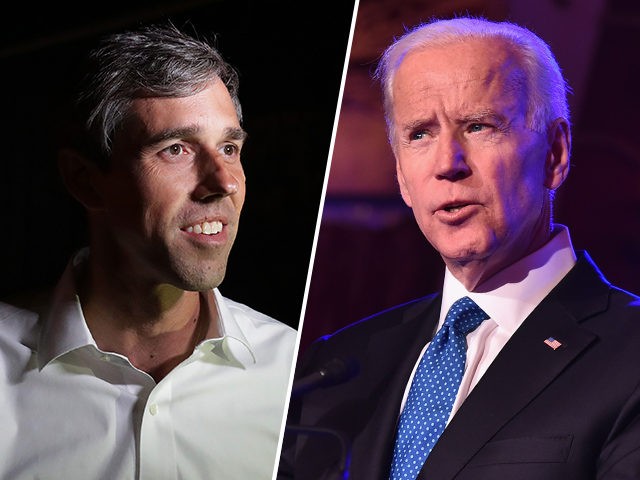Slate’s Jamelle Bouie argues that it could be tougher for white Democrats to defeat President Donald Trump in 2020 because white Democrats will have to move further to the left on racial issues to show solidarity with Democrats of color.
By doing so, white Democrats could turn off crucial blue-collar white swing voters in the general election, Bouie argues in a Wednesday piece. Because of this dynamic, Bouie thinks that a black Democrat could actually give the party the best chance to defeat the “racist” president since a black Democrat, like former President Barack Obama, will not have to put as much of an emphasis on racial and ethnic politics like a white Democrat will be required to do in the age of Trump.
He notes that blacks and Latinos make up a “substantial share of” the party’s primary voters, “and many of them seek expansive solutions to the ills facing their communities, from draconian immigration enforcement to entrenched racial inequality. These voters are absolutely crucial to winning the Democratic nomination, and everyone running will likely appeal to them with concrete policies.” White candidates, according to Bouie, “will face the additional task of demonstrating social solidarity—of showing that they understand the problems of racism and discrimination and empathize with the victims.”
Bouie, who admitted in 2016 that it was “not a bad play” for Trump to court black Americans with America-first and pro-U.S. worker immigration policies, argues that white Democrats who have a “history of racial triangulation” or are “unfamiliar” to black voters—like Sens. Sherrod Brown (D-OH), Amy Klobuchar (D-MN), and Elizabeth Warren (D-MA)—will have to more explicitly embrace racial and identity politics to show “solidarity” with Democrats of color.
He points out that current frontrunner and former Vice President Joe Biden, if he enters the race, could face “sharp questions about his legacy” on issues like Biden’s opposition to school busing in the 1970s and support for the “war on drugs” and the 1994 crime bill, which Biden drafted and said in 2016 that he was “not at all” ashamed of having supported. Rep. Robert Francis “Beto” O’Rourke (D-TX) will also have to answer for his more centrist votes on issues like immigration if he runs for president.
In 2016, Hillary Clinton, as Bouie points out, moved to the left on race issues, speaking about “structural racism” and “implicit bias” while meeting with Black Lives Matters leaders and the “Mothers of the Movement.” Clinton also “embraced” Dreamers and “described ‘police violence’ as a force that ‘terrorizes communities.’” Clinton won over black voters in the primaries but turned off white voters in the general election by playing up race issues. Bouie notes that “the number of white Democrats with conservative racial views was significant—and critically, those voters were clustered in key Midwestern states like Michigan and Wisconsin, enough to give Trump his narrow but decisive advantage in the Electoral College.”
If Democrats lost in 2016 because voters just did not like Clinton, Democrats, according to Bouie, will not have much to worry about in 2020.
“But if it’s an unavoidable result of being pitted directly against the president’s racism, then there’s a problem, especially for white candidates,” he notes.
Because left-wing Democrats, like Bouie, are convinced that Trump is a racist, 2020 primary voters will likely not accept moderation on hot-button racial issues from Democrats running for president.
“One possible implication of all of this is that black candidates may have the strategic advantage in the Democratic primary. Not because they’ll automatically win black voters, but because they won’t have to demonstrate the same social solidarity. Like Obama, they can stay somewhat silent on race, embodying the opposition to the president’s racism rather than vocalizing it and allowing them space to focus on economic messaging without triggering the cycle of polarization that Clinton experienced,” Bouie concludes. “Of course, how everything actually plays out depends on conditions and contingencies that are impossible to forecast, much less predict. But if this dynamic is real, then there’s a certain irony in the possibility that to get some Trump voters back into the Democratic fold, the party may have to choose another black messenger.”

COMMENTS
Please let us know if you're having issues with commenting.